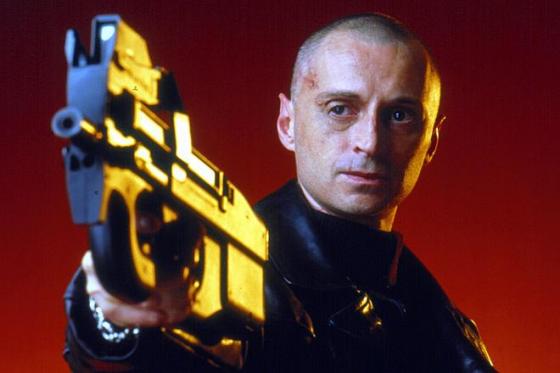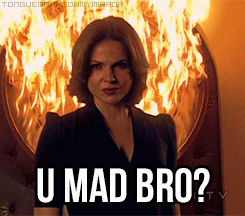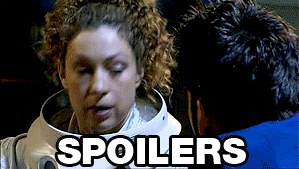Nathaniel has a thoughtful post on the morality of entertainment and art, focusing specifically on Game of Thrones and even Captain America. One particular point struck me:
I was also struck by an article(again, from Vulture) called Why Captain America Is Only Interesting If He’s a Prick. The article just elaborates on the headline: Captain America is devoid of artistic merit when he’s a good guy.
In 2014, of what artistic good is a flawlessly nice soldier? Can’t we get at least a little rough and dirty with this 75-year-old warhorse?
On one level, this (and the popularity of anti-heroes in general) is just a furtherance of “a silly idea” C. S. Lewis had already noted in his lifetime:
A silly idea is current that good people do not know what temptation means. This is an obvious lie. Only those who try to resist temptation know how strong it is… A man who gives in to temptation after five minutes simply does not know what it would have been like an hour later. That is why bad people, in one sense, know very little about badness. They have lived a sheltered life by always giving in.
So I just don’t buy this argument that only if we have characters who revel in immoral behavior can we have a meaningful conversation about morality.
This is an excellent insight with a portion of Mere Christianity I had long forgotten. And I think there is much to the argument for a moral hero.[ref]For example, the Doctor in Doctor Who is (in some incarnations) damn near pacifist. However, he also tends to suffer remorse for the mass genocide he (thinks he) committed in the Last Great Time War.[/ref] “Moral art does not have to be saccharine, optimistic, or “nice,”” writes Nathaniel, “any more than the actual creation made by God Himself is saccharine, optimistic, or “nice.”” However, we shouldn’t confuse (and I’m not claiming Nathaniel does) an aversion toward seemingly stale heroes for a “nihilistic” lack of moral clarity rooted in our “reptilian brains.” Since I don’t watch Game of Thrones, I’ll use examples from a show I’m currently watching.
When Once Upon a Time first came out, I wasn’t much of a fan. For one, I missed the first couple episodes (which are actually quite good). The early episodes I did see struck me as cheesy and forgettable. It wasn’t until I began watching Doctor Who and reading The Dresden Files that the idea of fairy tales as different realms became appealing once more. But I think my original disinterest in the show was largely due to the first episodes I saw being centered on Snow White and Prince Charming. As I’ve ventured into the 3rd season, I’ve understood more clearly why this was the case: they are boring characters. They shouldn’t be, but they are. If I take my cue from the The Vulture article referenced by Nathaniel, they are the Captain Americas of Once Upon a Time: annoyingly optimistic,[ref]“I choose hope”…“Happy endings always begin with hope”…gag…[/ref] always worried about doing the “right thing” even though their decisions tend to get more people killed,[ref]Apparently intentions matter more than results in the Enchanted Forest.[/ref]become bedridden from guilt after a single use of dark magic while protecting people from a murderous, power-hungry witch,[ref]This earns Snow’s first black spot on her mystical heart. I guess engaging in an extramarital affair with Charming while they were under the curse wasn’t enough to earn one.[/ref] etc. Charming is especially irritating as he self-righteously condemns anyone who disagrees with him or doesn’t fit into his mold of “goodness.”[ref]His constant reviling of Hook in season 3 was infuriating, even if he finally comes around.[/ref] Perhaps this isn’t an entirely fair assessment,[ref]Snow has her moments, but it is mainly when she’s discussing her trials bluntly without the sugarcoating. That’s when you get a glimpse of her courage.[/ref] but it generally captures my feelings as a viewer.
Who are my favorite characters then? They are—surprise, surprise—Mr. Gold/Rumpelstiltskin (“The Dark One”) and Regina (“The Evil Queen”). Why are the self-described villains my favorites? First, I should expose my biases. Mr. Gold is portrayed by Robert Carlyle, who rocked it in the hilarious British comedy The Full Monty. But even more important (for me, anyway), he was the pain-immune terrorist Renard in the James Bond film The World Is Not Enough. If an actor/actress was in a Bond film, no matter how terrible (and TWINE was not one of the best), they receive an honorary status in my book. Recognizing him in Once Upon a Time played a role in me rewatching the series.

As for Regina, Lana Parrilla is hot. When it comes to “the fairest one of all,” the Evil Queen blows Snow White out of the water. And that’s all I have to say about that (and I can because my wife thinks Hook is hot, so there).
But what is it about their characters? True, there is a certain sense of badassery that they embody. Gold walks with a cane in a dark suit, condescendingly calls people “dearie” (especially those who try to threaten him), is always one step ahead of virtually everyone, makes people offers they can’t refuse, rips hearts out (including his cheating wife’s), etc. Regina also rips out hearts (lots of them…her mother was the Queen of Hearts in Wonderland…), cuts through whining and diplomacy with magical fire, and cursed the Enchanted Forest by transferring its inhabitants to an entirely different realm with brand new memories for 20+ years. There is a morbid kind of glee when I see a cool, snarky character exerting their power over others. It gratifies probably some of the baser parts of my nature. However, these traits aren’t what make them interesting. The reason I connect with them the most is because they are in need of and are seeking redemption.
 Rumpelstiltskin’s transformation into the Dark One–the most powerful and feared entity in the Enchanted Forest–grew out of a desire to protect his only son, first from the Ogre Wars and then personal enemies. His wife had abandoned them both to sail with the pirate Killian Jones (Captain Hook). Furthermore, Rumpelstiltskin’s own father (who had a reputation as a coward and scoundrel) had abandoned him as a child in order to remain in Neverland and become Peter Pan. Rumpelstiltskin had even injured himself to avoid war because a magical Seer had prophesied that his actions on the battlefield would leave his newborn son fatherless. The entire reason he creates the Dark Curse (the plot of the first season) for the Evil Queen is so that he can be reunited with his son Baelfire, who was transported to this realm alone after a panicked Rumpelstiltskin refused to follow him into a portal between worlds. Many deaths, betrayals, and battles later, not only is Rumpelstiltskin/Mr. Gold reunited with his son, but he has even found love in the form of Belle (he was her “Beast”) and discovered he has a grandson. Rumpelstiltskin struggled with his “nasty habit” of self-preservation and his darker ways all the way up to the end.[ref]Well, sort of the end…[/ref] This is what made his sacrifice to save his friends and family so moving. Everything, good and bad, had been for his son.
Rumpelstiltskin’s transformation into the Dark One–the most powerful and feared entity in the Enchanted Forest–grew out of a desire to protect his only son, first from the Ogre Wars and then personal enemies. His wife had abandoned them both to sail with the pirate Killian Jones (Captain Hook). Furthermore, Rumpelstiltskin’s own father (who had a reputation as a coward and scoundrel) had abandoned him as a child in order to remain in Neverland and become Peter Pan. Rumpelstiltskin had even injured himself to avoid war because a magical Seer had prophesied that his actions on the battlefield would leave his newborn son fatherless. The entire reason he creates the Dark Curse (the plot of the first season) for the Evil Queen is so that he can be reunited with his son Baelfire, who was transported to this realm alone after a panicked Rumpelstiltskin refused to follow him into a portal between worlds. Many deaths, betrayals, and battles later, not only is Rumpelstiltskin/Mr. Gold reunited with his son, but he has even found love in the form of Belle (he was her “Beast”) and discovered he has a grandson. Rumpelstiltskin struggled with his “nasty habit” of self-preservation and his darker ways all the way up to the end.[ref]Well, sort of the end…[/ref] This is what made his sacrifice to save his friends and family so moving. Everything, good and bad, had been for his son.
Regina has a similar tale. Her dark path didn’t begin until after her emotionally abusive and manipulative mother Cora arranged (through a series of events) Regina’s engagement to Snow White’s father. Being in love with a stable boy, Regina planned to run  away with him, while trusting the young Snow White with the information. After coaxing the information out of Snow, Cora murdered Regina’s love. Feeling betrayed by Snow, Regina’s anger boiled over the years. She began taking magic lessons from the Dark One, ridding herself of her mother and eventually plotting against Snow White. Devoured by grief and anger, trapped in a loveless marriage, and hated by the commoners, Regina’s heart grew colder. She consistently sought love and affection throughout the chaos she caused to no avail. Even after succeeding in the Dark Curse, she realized how alone she truly was. She adopted a baby (who ends up being the grandson of Snow White and Prince Charming) with hopes of filling the hole in her heart. She later struggled to win the affection of her mother once she returned to the picture. Her constant search for love leads to much destruction, but she is slowly turned by her love for her adopted son. Ultimately, she ends up being willing to sacrifice herself for her son on numerous occasions.
away with him, while trusting the young Snow White with the information. After coaxing the information out of Snow, Cora murdered Regina’s love. Feeling betrayed by Snow, Regina’s anger boiled over the years. She began taking magic lessons from the Dark One, ridding herself of her mother and eventually plotting against Snow White. Devoured by grief and anger, trapped in a loveless marriage, and hated by the commoners, Regina’s heart grew colder. She consistently sought love and affection throughout the chaos she caused to no avail. Even after succeeding in the Dark Curse, she realized how alone she truly was. She adopted a baby (who ends up being the grandson of Snow White and Prince Charming) with hopes of filling the hole in her heart. She later struggled to win the affection of her mother once she returned to the picture. Her constant search for love leads to much destruction, but she is slowly turned by her love for her adopted son. Ultimately, she ends up being willing to sacrifice herself for her son on numerous occasions.
My point is not that these characters should have made their bad choices. My complaint isn’t even that the story of Snow White and Prince Charming are bland compared to that of Gold and Regina. Far from it. But I can connect with those who have fallen. I can root for them to repent, to be reconciled with friends and family, and to be forgiven. I personally connect with those who need redemption more than those who don’t seem to need it at all. I prefer these characters because, in some small way, I see a little of myself in them. And I need redemption as much as anyone else.
There’s nothing nihilistic about that.
